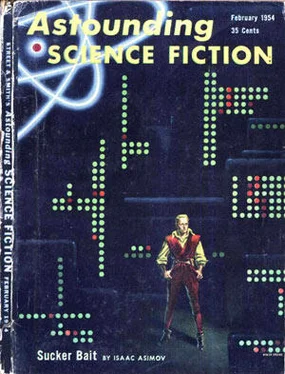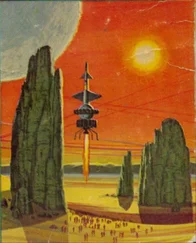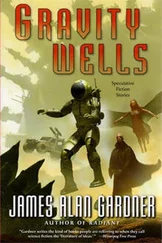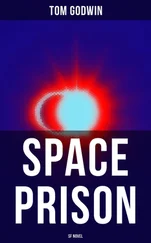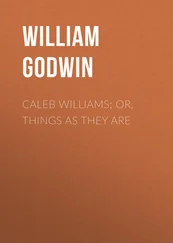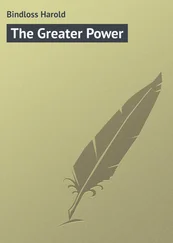Tom Godwin - The Greater Thing
Здесь есть возможность читать онлайн «Tom Godwin - The Greater Thing» весь текст электронной книги совершенно бесплатно (целиком полную версию без сокращений). В некоторых случаях можно слушать аудио, скачать через торрент в формате fb2 и присутствует краткое содержание. Год выпуска: 1954, Издательство: Street & Smith Publications, Inc., Жанр: Фантастика и фэнтези, на английском языке. Описание произведения, (предисловие) а так же отзывы посетителей доступны на портале библиотеки ЛибКат.
- Название:The Greater Thing
- Автор:
- Издательство:Street & Smith Publications, Inc.
- Жанр:
- Год:1954
- ISBN:нет данных
- Рейтинг книги:5 / 5. Голосов: 1
-
Избранное:Добавить в избранное
- Отзывы:
-
Ваша оценка:
- 100
- 1
- 2
- 3
- 4
- 5
The Greater Thing: краткое содержание, описание и аннотация
Предлагаем к чтению аннотацию, описание, краткое содержание или предисловие (зависит от того, что написал сам автор книги «The Greater Thing»). Если вы не нашли необходимую информацию о книге — напишите в комментариях, мы постараемся отыскать её.
The Greater Thing — читать онлайн бесплатно полную книгу (весь текст) целиком
Ниже представлен текст книги, разбитый по страницам. Система сохранения места последней прочитанной страницы, позволяет с удобством читать онлайн бесплатно книгу «The Greater Thing», без необходимости каждый раз заново искать на чём Вы остановились. Поставьте закладку, и сможете в любой момент перейти на страницу, на которой закончили чтение.
Интервал:
Закладка:
He unslung the police carbine and laid it across his knees, making sure once again that the extra clip of cartridges was still in his pocket. Two cartridges left in the magazine, five in the clip. Seven shots and nine police. A regulation rifle would have been better, with the vicious jut of its bayonet to rip at their guts when the rifle was empty, but beggars and Undergrounders can’t be choosers. He had been lucky to get his hands on the carbine during the brief, wild turmoil of the escape.
The girl’s hard breathing died away as they rested and she smiled at him with a rueful shake of her head. “That was quite a pace you set. Walking is supposed to be healthful; in our case most decidedly so. But how long can we keep on with this forever running?”
“Well—” He shrugged his shoulders. “We can run, or we can take the alternative.”
She toyed with the chain on her wrist, staring unseeingly across the street. “Yes, we could take the alternative,” she said. “The knife and the whip and the fist until they were satisfied we had told all we knew, and then the bullet. So—we keep running.”
“You could have had safety and the benevolent regard of the State,” he remarked, watching her curiously. “Only volunteers are in the Underground.”
“Benevolent!” Her lip curled with distaste.
“How long have you been in the Underground?” he asked.
“Three years.”
“Why did you join?”
“For the same reason you did, and everyone else—because humans should be more than helpless automatons obeying every whim of the State.”
“What was your job in the Underground?” he asked.
“The State would say I was a propagandist—I prefer to think of myself as teacher of the truth. This was once a great, free nation where a man could cross it from east to west, north to south, without question or interference. It was his country, and he was proud of it. He was proud, not afraid. His home was his own, inviolable, and his family was his to care for and love. Children were taught to respect right and decency, and to hate oppression and cruelty. People were proud and free—not humble and afraid as they are now. And, above all, there was a mutual trust and kindness between people, not the suspicion of each other and the indifference that the State tries so hard to sow.
“Now, only the State is to be trusted or loved; the State is good and all else is evil. My job was to help show the lie of this, and to prove the lie of the State when it says that all was poverty and evil before the coming of the State; that only the great, benevolent State stands between the people and decadence and starvation. My job was to prove these lies were lies, and to show that people can be free again, to show them that no man has the right to dictate the lives of other men. And to show them that the State is not omnipotent; show them, and never let them forget, that the great all-powerful, all-wise State is one man, one scheming, bloated little ego-maniac. The older people know these things, but they don’t dare speak. The younger ones can be shown and, when they see, all will have a unity of purpose. All will have a common goal, freedom. The State will fall before their unity and people can once again be more than obedient sheep.”
Her eyes flashed with the intensity of her convictions and Thorne smiled faintly. She saw it and demanded challengingly, “Is it funny?”
Thorne continued to regard her with the faint, humorless smile. “Did you ever try to convince a herd of sheep that the only reason they were being taken from pasture to pasture was to condition them for the slaughter?”
“People aren’t sheep!” she retorted. “People are as fine as they ever were. The older ones know, but they don’t dare speak or the State will hear. The younger ones are the same, at heart—they don’t know, they’ve never had the chance to know, but they will believe when they’re shown.”
“So we of the Underground devote our lives to trying to show them until one of them informs the police, and wins the little gilded ‘Loyal Citizen’ medal.”
“You’re judging them all by the few rats among them,” she said coldly. “And the others—do you think they want those medals? When the lives of a man’s family are at stake he has to talk. He doesn’t want to—he doesn’t want to tell the police what he knows of the Underground—but the life of one Undergrounder can’t balance against the lives of his family. So he has to tell what he knows, and he has to take the gilded medal. And he hates the thing—it’s a badge of dishonor in the eyes of all but the State. He wants to throw it back in their faces and kill them. But he can’t; he has to take it and let the shame and guilt of what he’s done be with him the rest of his life.”
“I know,” he answered, no longer smiling. “Some of them have no choice. I joined the Underground for the same reason you did, but a long time before you did. I felt as you do, at first, but as the years go by and we make so little progress against the State—well, it takes the fine edge off your hopes.”
“We’re making progress,” she insisted. “We can’t expect to undo in a few years what was so long in the making. The last war was only the culmination of the leader’s plans that they had laid years before. It gave them the complete emergency powers they needed to make our country into a State. They got a head start on us, but we’ll become stronger as time goes by.”
“I hope so,” he said, without conviction. “When I joined the Underground I believed as you do; I believed that people should, and could, be free. I hated the State and I believed that the people could be awakened to its murderous rottenness. Now, I’m not so sure about awakening the people, but I hate the State more than ever.”
“The people know what the State is—all the older ones and most of the younger ones. But they’re afraid to speak against it, yet; the penalty is death for such treason against the State. And, if they escape to the Underground, the penalty will be inflicted on their families. But the State can’t stamp out their wish to be friends with all others—it can’t replace human sympathy and understanding with nothing but suspicion and distrust for each other. The human heart wasn’t made to hold only hate—it was made to hold kindness and understanding for others, and all the guns and whips in the State can’t change it. And, in the end, this will be what unites the people and the State will fall.”
Thorne smiled at her again, gently, as one might smile at a child. Her faith was her own, and not his to discourage. “Perhaps you’re right,” he said. “I hope so. And now—rest as best you can. We’ll go on after a little while and we’ll find some way to lose them before the night is over.”
He looked again up the road, listening and watching for the tiny black dots that would eventually come. It was silent and clear, so far as he could see, and he turned back to the girl, conscious of her stare. She had not relaxed, but was sitting straight against the wall, watching him. She was toying with the chain on her wrist again, her jingling of it reflecting the troubled uncertainty on her face.
“You’d better rest while you can,” he advised again.
“There’s something I have to know, first,” she said. “And a promise I want you to make. Do you really think we’ll be able to lose them tonight?”
“I think so,” he lied without hesitation.
“I think you’re a liar,” she replied calmly. “It’s a good, white lie, but it’s a lie. I’ve had a feeling all day that something was going to happen, and it keeps growing stronger. And I think you have, too… I think you’re as sure as I am that this will be the last lap of our little race.”
Читать дальшеИнтервал:
Закладка:
Похожие книги на «The Greater Thing»
Представляем Вашему вниманию похожие книги на «The Greater Thing» списком для выбора. Мы отобрали схожую по названию и смыслу литературу в надежде предоставить читателям больше вариантов отыскать новые, интересные, ещё непрочитанные произведения.
Обсуждение, отзывы о книге «The Greater Thing» и просто собственные мнения читателей. Оставьте ваши комментарии, напишите, что Вы думаете о произведении, его смысле или главных героях. Укажите что конкретно понравилось, а что нет, и почему Вы так считаете.
